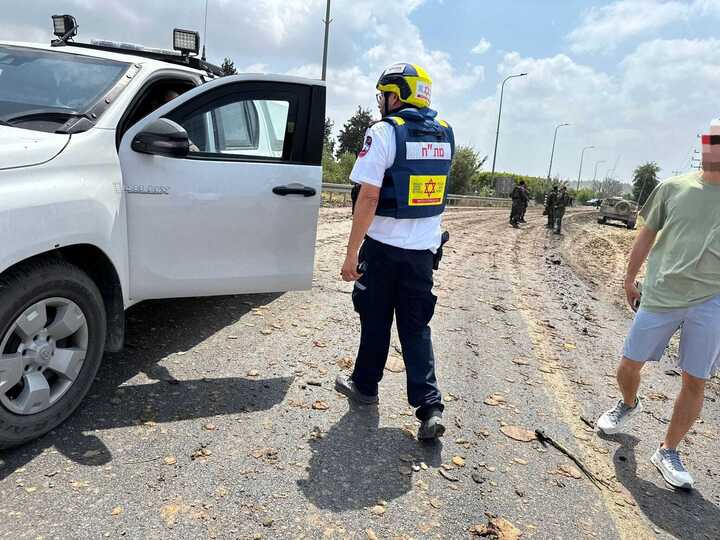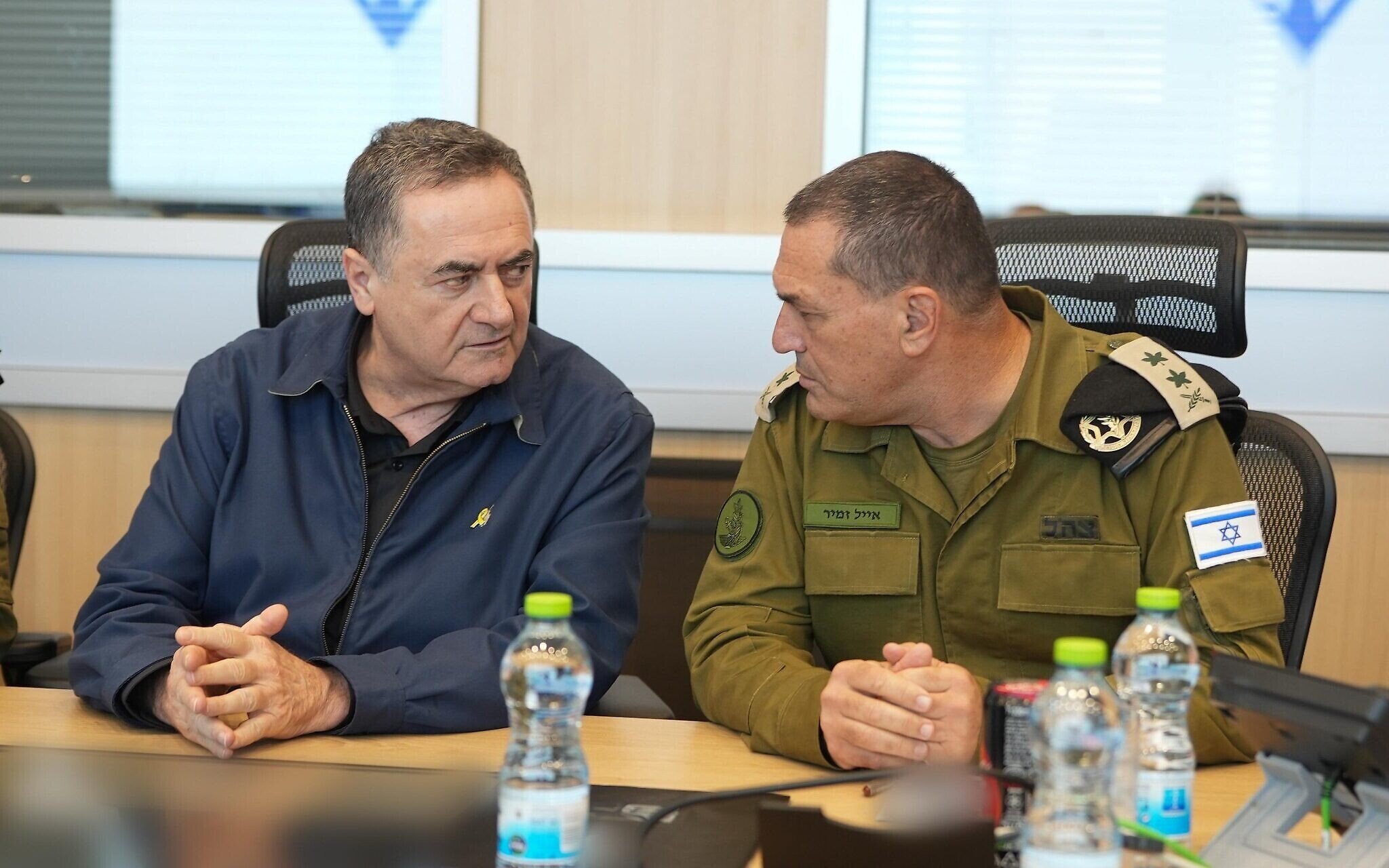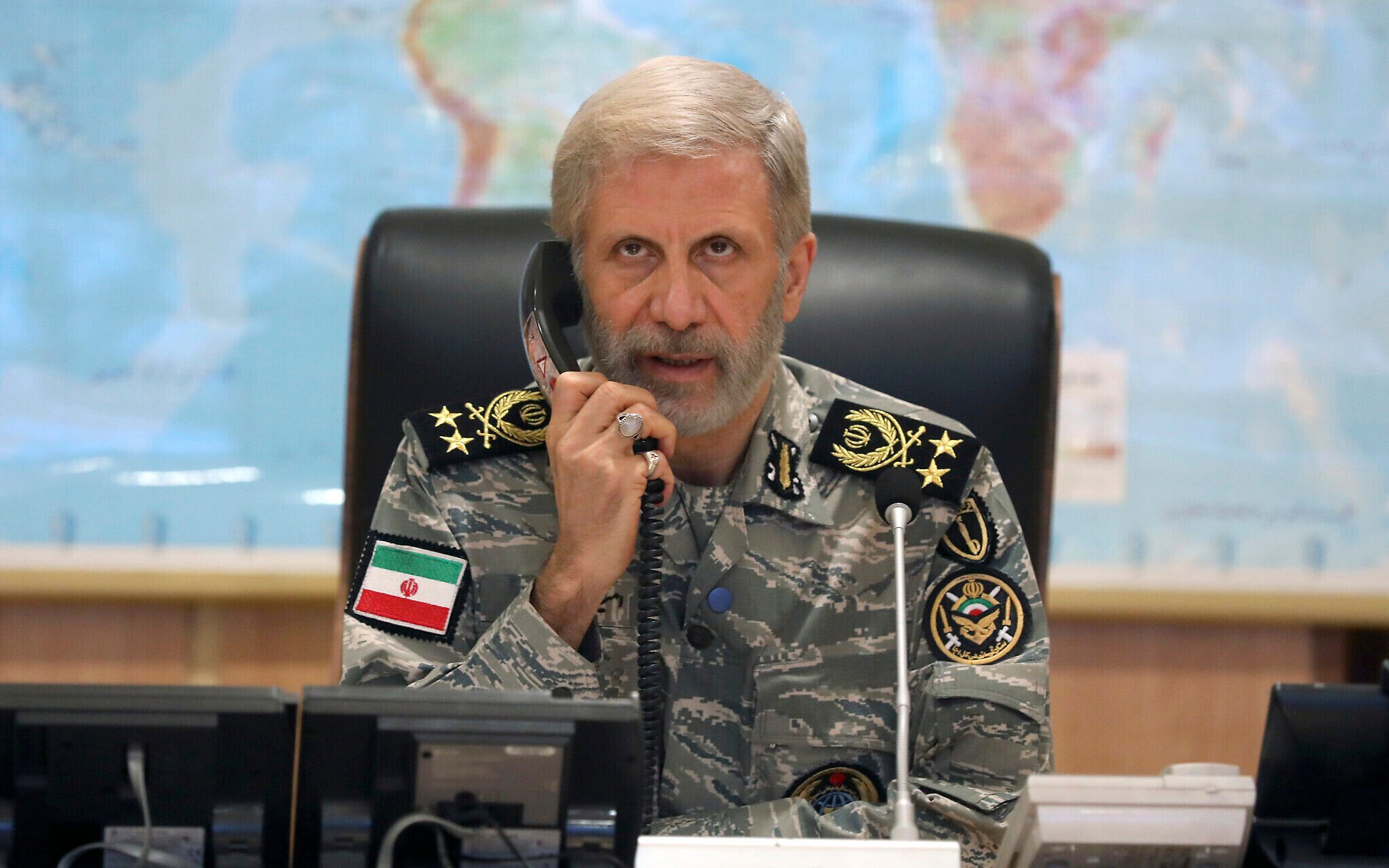



A prolonged ballistic missile attack from Iran sent millions seeking shelter across Israel on Monday morning, with one impact causing power outages in a number of southern towns.
There were no injuries reported in the attack, which triggered sirens in northern, central and southern Israel, including alerts in communities close to the Gaza and Lebanese borders.
The Israel Defense Forces said six or seven missiles were launched from Iran in four waves over a 40-minute period.
The Israel Electric Corporation said the ballistic missile impact near a “strategic infrastructure facility” in southern Israel caused temporary power disruptions in several towns in the area.
One more ballistic missile was fired around an hour later, again triggering sirens in the north of Israel. The projectile was intercepted and there were no injuries reported.
Another missile, also intercepted, was fired overnight, sending residents of central Israel scrambling for shelter at around 3 a.m.
The Iranian attack came a day after the United States bombed three key nuclear sites in Iran, joining an Israeli air campaign against Iran’s nuclear and military infrastructure that began on June 13.
Iran has responded to the Israeli attacks with near-daily barrages of missiles at cities, killing 24 people and wounding thousands, according to health officials and hospitals. Some of the missiles have hit apartment buildings, a university and a hospital, causing heavy damage.
Israel kept up its air campaign against Iran’s military and nuclear program overnight and into Monday.
In a statement, Defense Minister Israel Katz said the IDF was “striking with unprecedented force regime targets and governmental repression bodies in the heart of Tehran,” as large blasts were reported in the Iranian capital.
“Images will soon be released, illustrating the depth of the damage,” he said in statement issued by his office.
“For every rocket fired at the Israeli home front, the Iranian dictator will be severely punished, and the strikes will continue with full intensity. We will continue to act to defend the home front and defeat the enemy until all war objectives are achieved,” Katz added.
The military also said strikes destroyed several ballistic missile storage and launch sites that were aimed at Israel.
The IDF said over 15 fighter jets carried out strikes in the Kermanshah area, targeting Iranian ballistic missile launch sites.
An Israeli Air Force drone was shot down over the Khorramabad area in western Iran, the IDF confirmed Monday morning, following Iranian media reports.
“During operational activity, an Air Force unmanned aerial vehicle was downed in Iran. There is no fear of information leaking,” the military said.
Iranian media reported that the drone was a Hermes model.
It was apparently the second time the Iranians have downs an Israeli drone since the start of the war — last week, an IAF Hermes 900 UAV was shot down over the Isfahan area.
As the world awaited Iran’s promised retaliation for American strikes on its nuclear sites, Supreme Leader Ayatollah Ali Khamenei called the bombing campaign Israel launched on June 13 “a big mistake” and “a big crime.”
“The Zionist enemy… is being punished right now,” Khamenei wrote on social media before Monday morning’s barrage, alongside an image of missiles raining down on an Israeli city, and a huge skull.
He was apparently referring to the overnight missile attack on Israel, which saw a single projectile launched that was intercepted by air defenses.
Meanwhile, the new head of Iran’s military, Major General Amir Hatami, said that every time Americans have “committed crimes” against Iran, they’ve received a decisive response, and it will be the same this time, according to the Fars news agency.
Iranian Gen. Abdolrahim Mousavi, the chief of joint staff of armed forces, warned Washington its strikes had given Iranian forces a “free hand” to “act against US interests and its army.”
Mousavi described the American attack on Iran’s nuclear facilities as violating Iran’s sovereignty and tantamount to invading the country, the state-run IRNA news agency reported.
In the wake of the American attacks on Iran’s nuclear sites, calls came from across the globe for de-escalation and a return to diplomacy to resolve the conflict.
On Monday, the European Union’s top diplomat said the bloc remained “very much focused on the diplomatic solution.”
“The concerns of retaliation and this war escalating are huge,” Kaja Kallas said at the start of a foreign ministers’ meeting in Brussels where Iran has jumped to the top of the agenda.
“Especially closing of the Strait of Hormuz by Iran is something that would be extremely dangerous and not good for anybody,” Kallas said, referring to a maritime route crucial for oil transport.
On Sunday, Iranian officials repeated their longtime threats of possibly closing the key shipping lane.
Israel says its sweeping assault, which began June 13, on Iran’s top military leaders, nuclear scientists, uranium enrichment sites, and ballistic missile program, is necessary to prevent the Islamic Republic from realizing its avowed plan to destroy the Jewish state.
A US-based organization said Friday that Israel’s strikes against Iran have killed at least 657 people, including civilians and members of the security forces.
Times of Israel staff contributed to this report.




